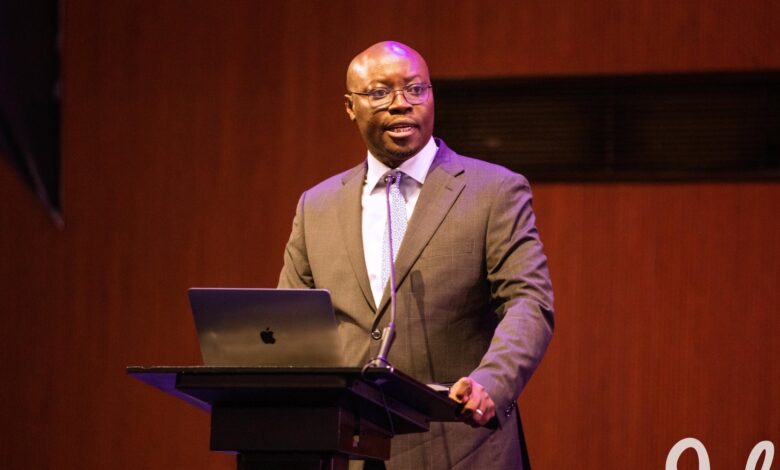Energy Sector Poses Major Economic Risk to Ghana, Says Finance Minister Ato Forson
Ghana's Energy Crisis: $2B Shortfall

- Dr. Cassiel Ato Forson, has identified Ghana's energy sector as the most significant economic risk
- Dr. Forson revealed that the energy sector is burdened with a financial gap of approximately $2 billion.
- This amount surpasses our domestic capital expenditure.
Minister of Finance, Dr. Cassiel Ato Forson, has identified Ghana’s energy sector as the most significant economic risk currently facing the nation, citing a substantial financial shortfall that surpasses the country’s domestic capital expenditure.
In a post on the social media platform X, following a detailed session on the Ghana Energy Compact under Mission 300 at the World Bank in Washington, D.C., on Tuesday, April 22, Dr. Forson revealed that the energy sector is burdened with a financial gap of approximately $2 billion.
“During a deep-dive session on the Ghana Energy Compact under Mission 300 at the World Bank Yesterday, I reiterated that Ghana’s energy sector is currently the biggest economic risk we face. The sector is burdened with a financial shortfall of approximately $2 billion,” he stated. “This amount surpasses our domestic capital expenditure. This challenge goes beyond tariffs. The entire energy value chain requires urgent reform. Inefficiencies, especially in the distribution sector, are being passed onto the ordinary Ghanaian through high tariffs.”
Dr. Forson emphasized that the Electricity Company of Ghana (ECG) alone could potentially halve the sector’s financial shortfall by addressing its operational inefficiencies. He also disclosed that the government has taken steps to introduce private sector participation in the energy sector, with cabinet approval already granted. Additionally, a Legislative Instrument has been submitted to Parliament to facilitate competitive procurement of power plants.
“ECG alone could cut the shortfall by half if it addresses these inefficiencies. Cabinet has already approved private sector participation, and we have submitted the Legislative Instrument to Parliament to enable competitive procurement for power plants. These are critical steps toward bringing transparency and sustainability to the sector. The Energy Compact has come at the right time,” he wrote.
“It has the potential to make a lasting impact, and we are hopeful that the process will not be delayed. Time is of the essence. We must act swiftly to turn this around for the good of our economy and the well-being of our people,” the X post continued.
Dr. Forson’s remarks come a week after Ghana reached a staff-level agreement with the International Monetary Fund (IMF) on the fourth review of its IMF-supported program, which is expected to unlock approximately $370 million in financial assistance to support the country’s economic recovery efforts. The Minister’s assessment of the energy sector’s risks underscores the urgency of reforms to ensure the sector’s financial stability and sustainability, crucial for Ghana’s broader economic health.





